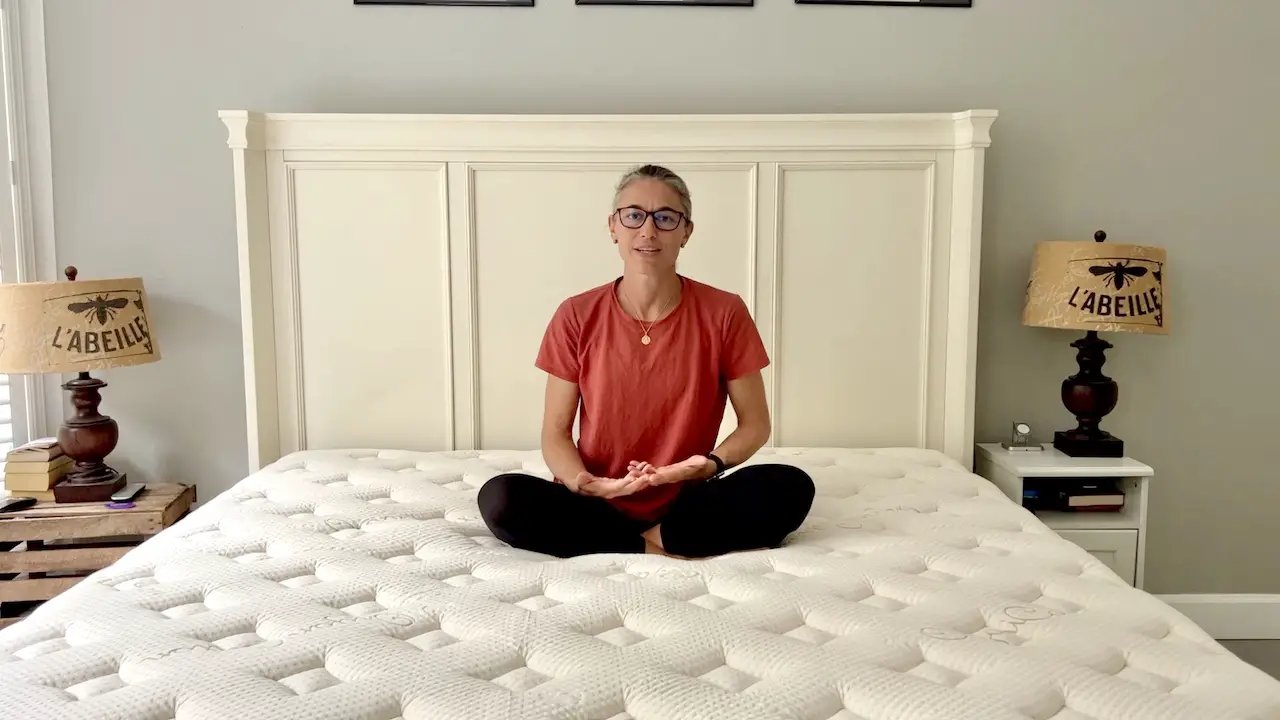WHY DO I DREAM SO MUCH
6 Tips To Manage
Dreaming is a fascinating and universal human experience, yet it remains one of the least understood aspects of sleep. For some, dreaming can feel excessive, vivid, or even overwhelming. If you’ve found yourself asking, “Why do I dream so much?” you’re not alone.
Let’s explores the reasons behind frequent dreaming, the science of dreams, and tips to manage their impact on your sleep quality.
Table of Contents
What Are Dreams?
Dreams are sequences of images, thoughts, and emotions that occur during sleep. They are most commonly associated with the rapid eye movement (REM) stage of sleep, though they can happen during other stages as well.
While everyone dreams, the frequency, vividness, and recall of dreams vary from person to person. You may wonder why you dream so much, while others wonder why they do not dream…
The Science Behind Dreams
The Role of REM Sleep
The majority of dreaming happens during REM sleep, a stage characterized by heightened brain activity, rapid eye movements, and temporary muscle paralysis. This stage typically occurs in cycles, each lasting about 90 minutes throughout the night. As the night progresses, REM stages become longer, increasing the opportunity for dreams.
Why Do We Dream?
Although scientists haven’t reached a definitive answer, there are several theories about why we dream:
Emotional Processing: Dreams may help us process emotions and stress, acting as a mental rehearsal or coping mechanism.
Memory Consolidation: Dreams may assist in organizing and storing memories from the day.
Random Brain Activity: Some theories suggest that dreams are simply the brain’s way of making sense of random neural activity during sleep.
Why Do I Dream So Much?
Frequent or vivid dreams are usually harmless, but they can become problematic if they:
Disrupt your sleep quality.
Cause distress or anxiety.
Lead to excessive daytime fatigue.
If you experience nightmares, recurring distressing dreams, or other symptoms affecting your daily life, it may be worth consulting a sleep specialist.
When Should You Be Concerned?
Frequent or vivid dreams are usually harmless, but they can become problematic if they:
Disrupt your sleep quality.
Cause distress or anxiety.
Lead to excessive daytime fatigue.
If you experience nightmares, recurring distressing dreams, or other symptoms affecting your daily life, it may be worth consulting a sleep specialist.
How to Manage Excessive Dreaming
If you find yourself dreaming too much, leading to sleep disturbance and daytime fatigue, here are 6 tips to help you manage your excessive dreaming:
1. Establish a Consistent Sleep Schedule
Going to bed and waking up at the same time every day helps regulate your sleep cycles, including REM sleep. If you do not have a regular sleep routine, use our 7-to-10PM sleep routine schedule to get started.
2. Practice Relaxation Techniques
Activities like meditation, deep breathing, and progressive muscle relaxation can reduce stress levels, potentially minimizing vivid dreams.
3. Optimize Your Sleep Environment
Ensure your bedroom is conducive to restful sleep by:
Keeping it cool, quiet, and dark.
Using a comfortable mattress and bedding.
Limiting screen time before bed.
4. Avoid Stimulants
Limit your intake of caffeine, nicotine, and alcohol, especially in the hours leading up to bedtime.
5. Monitor Your Diet
Avoid heavy or spicy meals close to bedtime. Opt for sleep-friendly snacks like bananas, almonds, or chamomile tea instead.
6. Consider Professional Help
If frequent dreaming is tied to mental health conditions or sleep disorders, therapy or medical intervention may be beneficial. Cognitive-behavioral therapy (CBT) and medications are common treatments for dream-related issues.
Why Do I Dream So Much - Final Thoughts
If you find yourself asking, “Why do I dream so much?” it is essential to consider the various factors that influence dreaming, from stress levels to sleep patterns and overall health. While frequent dreaming is often harmless, it can sometimes indicate underlying issues worth addressing. By understanding the science of dreams and making small lifestyle changes, you can create a more restful sleep experience and achieve better overall well-being.
References
- Science Direct. (2005). Excessive Dreaming. Retrieved from https://www.sciencedirect.com/topics/medicine-and-dentistry/excessive-dreaming
- HealthLine. (2024). What Are Vivid Dreams and Why Do I Have Them?. Retrieved from https://www.healthline.com/health/vivid-dreams-causes
- Medical News Today. (2024). Causes of vivid dreams. Retrieved from https://www.medicalnewstoday.com/articles/325396
FAQ
Most frequent questions and answers
Vivid dream recall often happens when you wake up during or shortly after REM sleep, the stage where most dreaming occurs. Stress, medications, and lifestyle factors can also enhance dream vividness.
Excessive or vivid dreaming can disrupt sleep if it causes frequent awakenings or emotional distress. If this happens regularly, it may impact how rested you feel.
Yes, foods high in sugar, caffeine, or spices can disrupt sleep and potentially lead to more vivid dreams. Tryptophan-rich foods might also influence dream activity.
Frequent or intense dreams aren’t usually a problem, but they can be linked to conditions like anxiety, PTSD, or sleep disorders. Consulting a doctor may help.
You can reduce excessive dreaming by maintaining a consistent sleep schedule, managing stress, avoiding stimulants before bed, and creating a calming bedtime routine.
Why do I remember my dreams so vividly?
Vivid dream recall often happens when you wake up during or shortly after REM sleep, the stage where most dreaming occurs. Stress, medications, and lifestyle factors can also enhance dream vividness.
Can dreaming too much affect my sleep quality?
Excessive or vivid dreaming can disrupt sleep if it causes frequent awakenings or emotional distress. If this happens regularly, it may impact how rested you feel.
Do certain foods increase dreaming?
Yes, foods high in sugar, caffeine, or spices can disrupt sleep and potentially lead to more vivid dreams. Tryptophan-rich foods might also influence dream activity.
Are frequent dreams a sign of a health issue?
Frequent or intense dreams aren’t usually a problem, but they can be linked to conditions like anxiety, PTSD, or sleep disorders. Consulting a doctor may help.
How can I reduce excessive dreaming?
You can reduce excessive dreaming by maintaining a consistent sleep schedule, managing stress, avoiding stimulants before bed, and creating a calming bedtime routine.
Share this deal with a friend!

Laura Georgieff
Laura is a mother of three who did not sleep through the night for the first 5.5 years of her kids' lives. She is passionate about sleep quality and loves sharing her experience and knowledge of all thing bedding! It is her mission to help you make the best decisions when it comes to sleep and help you get the best deal on the market!






